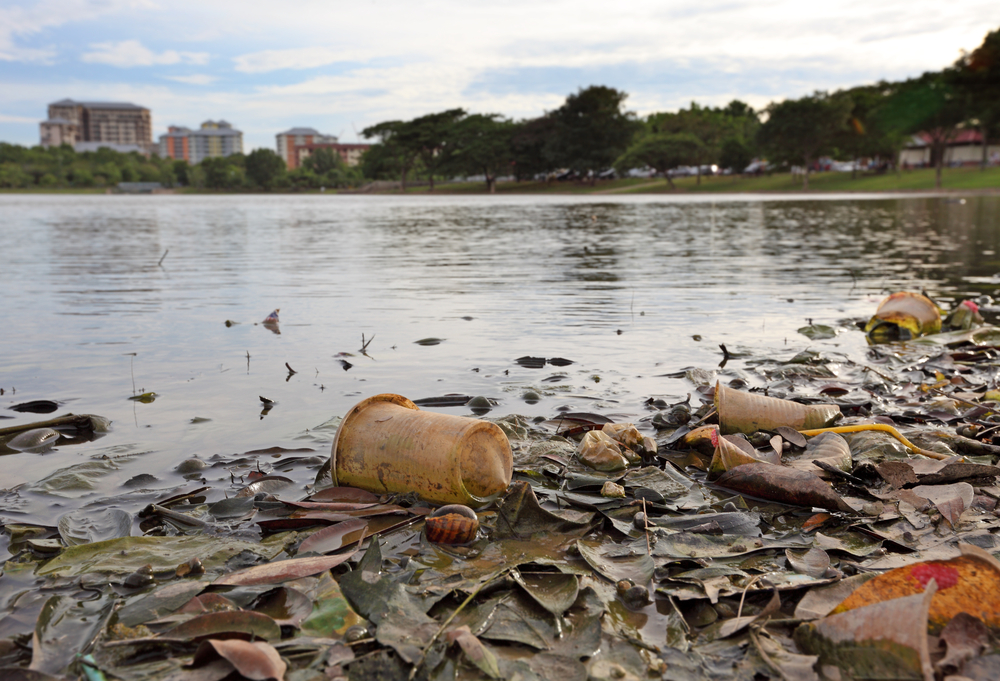These Numbers Could Doom America
Joel Salatin|January 14, 2020

This is not a column with answers. It’s a column searching for them.
Environmental degradation did not start with corporations, chemicals or culture. The history of civilization screams environmental degradation as far back as anyone can see.
Wonderful examples of regenerative systems exist. But for the most part, the steady march of civilization includes a parallel march toward environmental degradation.
An inability to quantify (or measure) this degradation is ubiquitous.
If defining a problem is foundational to solving it, here’s the problem, in two aspects.
What’s It Worth?
First, we do not have a way to measure degradation or loss of the commons. What’s a honeybee worth? What’s potable water worth? What’s a cubic yard of productive soil worth?
We simply don’t know.
The second part adds insult to this ignorance injury.
We not only don’t know its costs… but in American culture we actually incentivize degradation by calling it an asset.
If I dump toxins in the river that flows through my property, our economic system does not have a way to capture that cost as a loss against our GDP.
In fact – and this is the point – GDP captures that activity as a net gain.
How so? Because the cost of cleanup adds economic activity.
GDP calculations make no distinction between employment and economic activity that rights a wrong versus what makes a positive more positive.
Taking a bright-eyed child and leveraging their educational acumen to create more insight is all positive. But teaching a child who’s mentally harmed by nutritional or social abuse is far more costly.
Yet we have no way to distinguish the relative value of those two activities.
In my river pollution example, the cost of cleanup adds to GDP because it creates employment, requires machinery and uses fuel.
As clever as we think we are, we have no way in our GDP analysis of subtracting the costs of remediation.
As iconic writer Wendell Berry notes, “What’s wrong with us creates more GDP than what’s right with us.”
At a xeriscaping conference in Phoenix, I listened to a Las Vegas public works engineer describe how the city values water. It actually puts a different value on a gallon of water that grows a pepper plant than one that helps fill a casino hot tub.
The gallon on the farm was worth a couple of cents. The gallon in the casino was worth $150.
I sat there agape that somebody dared to make this kind of analysis… and at the hubris behind such an analysis.
Perhaps had they changed the parameters to “if you’re starving” and recalculated the value, that would have gotten a different result.
Doomed
The fact that additional jails, hospitals, soil loss, food-borne cases of diarrhea (what’s a case of diarrhea worth?), vaccine-induced autism (what’s a case of autism worth?) and other degradations in our society cannot create a negative component on our GDP makes me fear for our future.
Can a civilization that fails to recognize resource depletion and societal dysfunction as an economic negative actually survive?
I think not.
Any civilization unable to track liabilities, and especially one that calls liabilities assets, is doomed to self-destruct. That seems as certain as the sun rising in the morning.
So what do we do about it?
The Price of Happiness
Little pieces have been bandied about, like carbon credits. But nothing sweeping has been done.
Now, lest everyone think I’ve gone over to the woo-woo side, perhaps the best attempt to resolve this issue was the nation of Bhutan’s “gross domestic happiness” initiative.
Before you laugh… the country has given serious attention to creating economic measurements for things.
At least it gives a culture a formula for tracking a trajectory. Even if you disagree on the nuts and bolts, you have to appreciate the effort to capture negative measurements.
For example, it documents political engagement as a measure of social health. If fewer people vote, that goes into the formula as a negative.
If there’s an uptick in divorce, that gets calculated as a negative. How about juvenile detention centers? Negative. Soil erosion? Negative. Polluted river? Negative. Honeybee decline? Negative.
This composite offers a kind of “state of the nation” measurement, and I appreciate the effort.
A Genius Idea
A friend who consulted for the Parliament of Zimbabwe told me about an effort there to incentivize positives without creating negatives.
For example, the country decided it was good to have employment, production, diversity and fertility. Too often, production is at the expense of fertility, or employment is at the expense of diversity.
So it proposed a very high property tax rate. If you hired somebody, your tax went down. If you grew two things instead of one, taxes went down. If you farmed without soil erosion (a measuring device was installed at the lowest point of the farm to catch any runoff and monitor soil loss), you got a tax break. (If you had erosion, the tax break went away.)
I find this genius in concept.
I have no idea how to do it without more government intrusion than I can stand, but, again, I appreciate the concept.
The proposal didn’t pass.
In theory, though, it would enable a person who wants a country club property to have his country club property. But if all he wants to do is mow a big lawn and have a showplace, he would pay high taxes.
A neighbor who wants a working farm that uses regenerative soil-building practices and produces enough to hire people and increase the number of income-producing enterprises could get enough breaks to pay no property taxes at all.
(One property would be seen as a nonbenefit to society, and the other would offer substantial services without erosion and pollution.)
Yet if another working farmer wanted to grow a monocrop handled by machinery but depleted the soil while doing so, they would get a break for production but lose it all in depletion.
Fascinating.
Let’s Be Honest
Again, I make no claims about having answers, but I deeply appreciate groups that wrestle with such things.
The world needs a way to honestly appraise societal trajectories. It seems like we love to lie to ourselves.
Honest self-auditing is foundational to proper decision making.
How can a society make good decisions when its entire economic system lies?
Send me your thoughts on these proposals… or other solutions… here.

Joel Salatin
Joel Salatin calls himself a Christian libertarian environmentalist capitalist lunatic farmer. Others who like him call him the most famous farmer in the world, the high priest of the pasture, and the most eclectic thinker from Virginia since Thomas Jefferson. Those who don’t like him call him a bioterrorist, Typhoid Mary, a charlatan, and a starvation advocate. With a room full of debate trophies from high school and college days, 12 published books, and a thriving multigenerational family farm, he draws on a lifetime of food, farming and fantasy to entertain and inspire audiences around the world.



